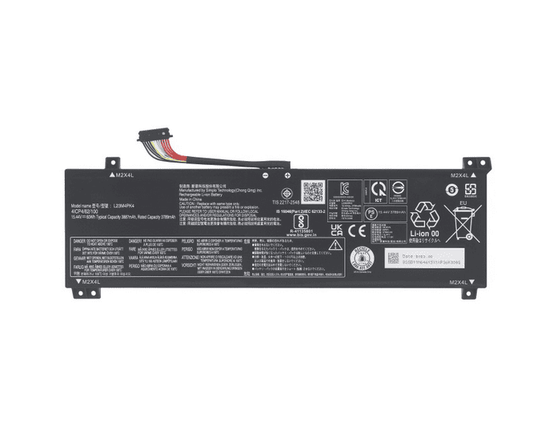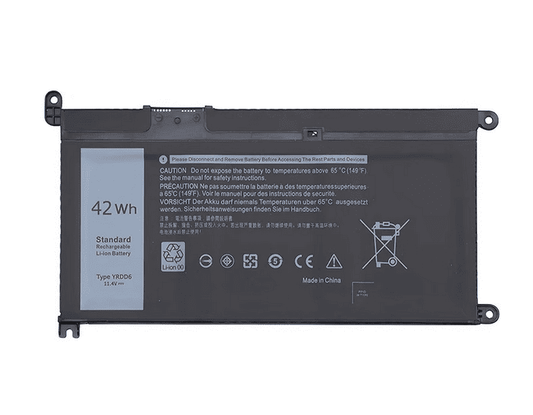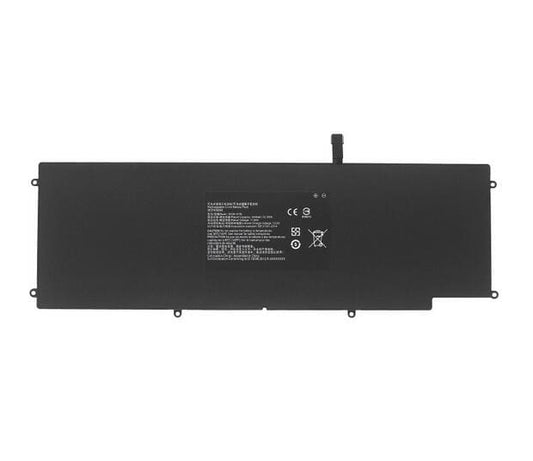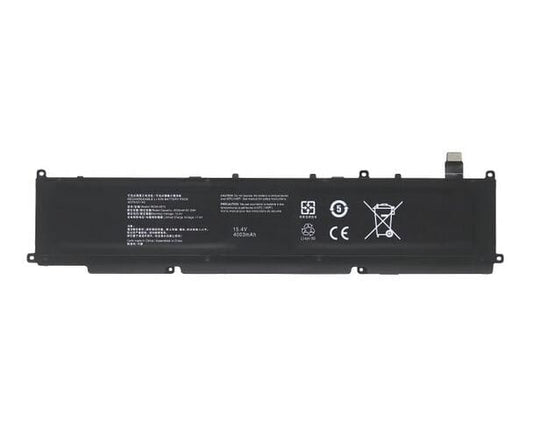
Top 5 Laptops for Programming in 2023
Share
1. Introduction
In the fast-paced world of technology, choosing the right equipment is a critical step towards success. This is particularly true when it comes to programming, a field where the speed, efficiency, and capabilities of your hardware can significantly impact your productivity and output.
1.1 Importance of Choosing the Right Laptop for Programming
A powerful laptop will not just make your programming more efficient but also ensure that you are well-equipped to handle any kind of projects that come your way. Be it web development, app development, data science, AI, or ML, a high-performance laptop can provide the edge you need to excel in these fields. It could mean the difference between meeting a critical deadline or losing valuable hours waiting for your code to compile.
1.2 Key Factors to Consider when Buying a Laptop for Programming
When shopping for a programming laptop, there are a few key factors that should guide your decision. These factors include:
Processor: This is the brain of your laptop. A powerful processor can execute commands faster, making your laptop more efficient. For programming, a laptop with at least an Intel Core i5 or equivalent is recommended.
RAM: The more RAM, the better. This is particularly true for programming, where you'll often have multiple applications and browser tabs open at the same time. A minimum of 8GB is recommended.
Storage: SSDs are much faster than traditional hard drives. For programming, a laptop with an SSD is practically a must-have.
Display: A comfortable, high-resolution display can reduce eye strain and make your coding experience much more enjoyable.
Keyboard: Given that you'll spend hours typing code, a comfortable keyboard is a must. Look for one with good travel and backlighting.
Battery Life: Programming can be a time-consuming task. The last thing you want is for your laptop to die in the middle of a coding session.
Operating System: Depending on your field of work, you might prefer a certain operating system.

2. Detailed Review of the Top 5 Laptops for Programming
The marketplace is filled with an array of laptops, all boasting high-end specs, sleek designs, and innovative features. For this guide, we've carefully chosen five laptops that stand out for their exceptional performance in a programming environment.
2.1 Apple MacBook Pro (M1 Chip)
The MacBook Pro with Apple's M1 chip is a powerhouse. Designed and built by Apple, the M1 system on a chip (SoC) consolidates the processor, GPU, and Neural Engine into a single chip that delivers industry-leading performance per watt.
Processor: 8-core M1 chip
RAM: 8GB – 16GB unified memory
Storage: 256GB – 2TB SSD
Display: 13.3" Retina display with 2560 x 1600 pixels resolution
Battery Life: Up to 20 hours
The MacBook Pro with the M1 chip delivers high performance and power efficiency, making it a top choice for programmers. The Retina display is sharp, bright, and easy on the eyes during extended coding sessions. Also, the macOS is popular among developers, as it's Unix-based, making it great for web development.
2.2 Dell XPS 15
The Dell XPS 15 offers a powerful blend of performance and portability, making it an excellent choice for programming. With a sleek, durable design and high-end components, it can handle demanding tasks with ease.
Processor: Up to 11th Generation Intel Core i9-11900H
RAM: Up to 64GB DDR4-3200MHz
Storage: Up to 4TB M.2 PCIe NVMe SSD
Display: 15.6" 4K UHD+ (3840 x 2400) InfinityEdge Touch display
Battery Life: Up to 13 hours
The XPS 15 stands out for its stunning 4K InfinityEdge display, which offers ample space to work with multiple windows or tabs. It also boasts a comfortable keyboard, excellent build quality, and runs on Windows, which is advantageous for .NET developers.
2.3 Lenovo ThinkPad X1 Extreme Gen 4
Known for their robust construction and performance, Lenovo's ThinkPad line is a favorite among programmers. The ThinkPad X1 Extreme Gen 4, with its impressive specs and features, continues this tradition.
Processor: Up to 11th Gen Intel Core i9 vPro
RAM: Up to 64GB DDR4 3200MHz
Storage: Up to 4TB PCIe SSD
Display: Up to 16" 4K (3840 x 2160) IPS, HDR 400, 600 nits
Battery Life: Up to 10.7 hours
The ThinkPad X1 Extreme is a fantastic option for programmers who value a sturdy build and a comfortable, responsive keyboard. The large, high-resolution screen is perfect for multitasking, and the machine offers ample memory and storage.
2.4 HP Spectre x360
The HP Spectre x360 is a high-performance laptop that offers a blend of both power and versatility. With its convertible design, the Spectre x360 can be used as both a conventional laptop and a tablet, providing a great advantage for programmers who also value flexibility.
Processor: Up to 11th Gen Intel Core i7-1165G7
RAM: Up to 16GB DDR4-3200 SDRAM
Storage: Up to 2TB PCIe NVMe M.2 SSD
Display: Up to 15.6" diagonal 4K UHD, IPS, micro-edge, WLED-backlit, multitouch-enabled, edge-to-edge glass with Corning Gorilla Glass NBT (3840 x 2160)
Battery Life: Up to 17 hours
The Spectre x360 stands out with its stylish and convertible design without compromising performance. The bright and sharp 4K display is excellent for programming, and the 2-in-1 design allows for versatility in how you work. HP's Command Center also allows you to customize performance, fan speed, noise, and external temperature—all to meet your computing needs.
2.5 ASUS ROG Zephyrus G14
The ASUS ROG Zephyrus G14 is a gaming laptop that also doubles as an outstanding machine for programming, thanks to its high-end specs and portable design.
Processor: AMD Ryzen 9 5900HS
RAM: Up to 32GB DDR4 3200MHz
Storage: Up to 1TB M.2 NVMe PCIe 3.0
Display: 14" Full HD 1920x1080 or WQHD 2560x1440, up to 120Hz, 100% sRGB, Pantone Validated, Adaptive-Sync
Battery Life: Up to 10 hours
The ROG Zephyrus G14 offers a balance of power and portability. The AMD Ryzen 9 processor is powerful, handling intensive programming tasks with ease. While it's smaller than other options on this list, the display is high quality, and the keyboard is comfortable to use. Plus, the laptop's gaming credentials mean that it has a high refresh rate—useful for game developers.

3. Comparison of Key Features
Now that we have discussed the top 5 laptops for programming in detail, let's dive deeper and compare their key features.
3.1 Table: Key Specs and Features Comparison
| Laptop Model | Processor | RAM | Storage | Display | Battery Life |
|---|---|---|---|---|---|
| Apple MacBook Pro (M1) | 8-core M1 chip | 8GB – 16GB unified memory | 256GB – 2TB SSD | 13.3" Retina, 2560 x 1600 | Up to 20 hours |
| Dell XPS 15 | Up to Intel Core i9-11900H | Up to 64GB DDR4-3200MHz | Up to 4TB M.2 PCIe NVMe SSD | 15.6" 4K UHD+ InfinityEdge Touch, 3840 x 2400 | Up to 13 hours |
| Lenovo ThinkPad X1 Extreme Gen 4 | Up to Intel Core i9 vPro | Up to 64GB DDR4 3200MHz | Up to 4TB PCIe SSD | Up to 16" 4K IPS, HDR 400, 600 nits, 3840 x 2160 | Up to 10.7 hours |
| HP Spectre x360 | Up to Intel Core i7-1165G7 | Up to 16GB DDR4-3200 SDRAM | Up to 2TB PCIe NVMe M.2 SSD | Up to 15.6" diagonal 4K UHD, IPS, micro-edge, WLED-backlit, multitouch-enabled, edge-to-edge glass, 3840 x 2160 | Up to 17 hours |
| ASUS ROG Zephyrus G14 | AMD Ryzen 9 5900HS | Up to 32GB DDR4 3200MHz | Up to 1TB M.2 NVMe PCIe 3.0 | 14" FHD 1920x1080 or WQHD 2560x1440, up to 120Hz, 100% sRGB, Pantone Validated, Adaptive-Sync | Up to 10 hours |
This table showcases the detailed specs of each laptop, highlighting the differences in their processing power, memory, storage, display, and battery life.
3.2 Table: Performance Benchmark Comparison
| Laptop Model | Cinebench R20 (multi-core) | Geekbench 5 (single-core) | Geekbench 5 (multi-core) | PCMark 10 |
|---|---|---|---|---|
| Apple MacBook Pro (M1) | 7790 | 1744 | 7640 | 7389 |
| Dell XPS 15 | 4848 | 1252 | 7019 | 6147 |
| Lenovo ThinkPad X1 Extreme Gen 4 | 4975 | 1260 | 7188 | 6238 |
| HP Spectre x360 | 4526 | 1192 | 6895 | 6034 |
| ASUS ROG Zephyrus G14 | 5652 | 1419 | 7411 | 6402 |
These benchmark scores give an indication of each laptop's performance. The Cinebench R20 and Geekbench 5 scores represent the laptop's CPU performance, while the PCMark 10 score gives a more general assessment of the laptop's capability in daily productivity tasks.
4. Conclusions and Final Thoughts
Choosing the best laptop for programming ultimately comes down to your specific needs and budget. Each of the laptops reviewed in this guide offers excellent performance, top-notch displays, and enough power to handle intensive coding tasks.
While the Apple MacBook Pro stands out with its M1 chip and 20-hour battery life, the Dell XPS 15 impresses with its beautiful 4K display and high RAM capacity. The Lenovo ThinkPad X1 Extreme Gen 4 is a robust choice for those valuing durability and a large display, whereas the HP Spectre x360 offers versatility with its 2-in-1 design. Lastly, the ASUS ROG Zephyrus G14 shines in the balance between power and portability, providing an excellent option for game developers.

5. Frequently Asked Questions
1. Is a gaming laptop good for programming?
Gaming laptops often come with high-end processors, abundant RAM, and robust graphics capabilities, making them a viable option for programming, especially for game developers or those working with graphics-intensive applications.
2. Is 8GB RAM enough for programming?
While 8GB RAM can handle basic programming tasks, it's recommended to opt for 16GB or more for professional programming, as it allows for smoother multitasking and handling of complex, resource-intensive tasks.
3. Can a MacBook Pro handle programming tasks?
Absolutely. The MacBook Pro, especially the models with the M1 chip, are powerful machines that are highly capable of handling a variety of programming tasks. Moreover, they come with macOS, which is a Unix-based system preferred by many developers.
4. Which OS is best for programming?
The choice of OS depends on the developer's preference and the nature of the work. Windows is required for .NET framework development, macOS is beneficial for iOS development, and Linux is often preferred for system administration and server-side work.
5. Is SSD important for programming?
Yes. SSDs provide faster data access speeds compared to traditional HDDs. This can significantly speed up tasks like compiling code and loading large projects or databases, hence boosting the overall productivity.




